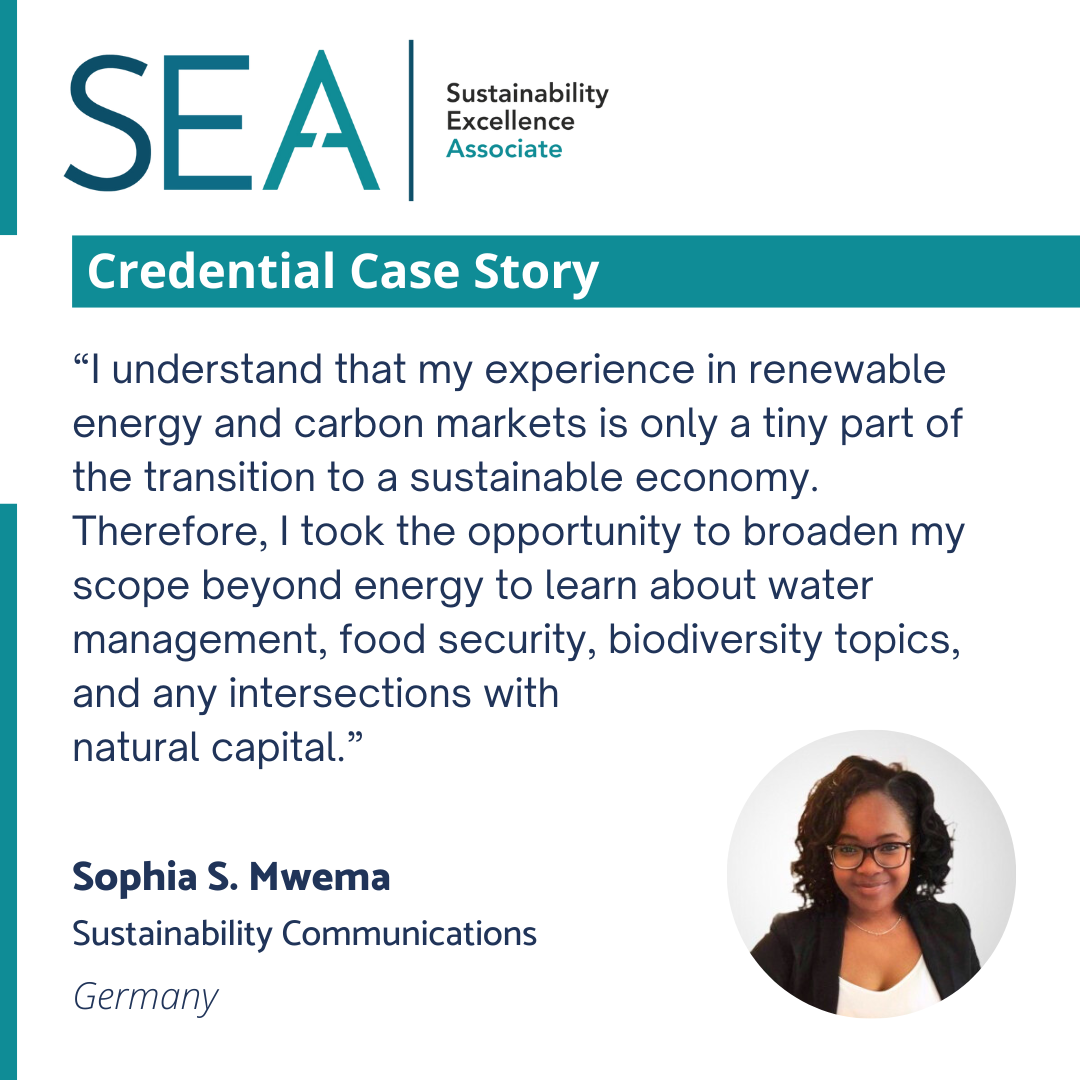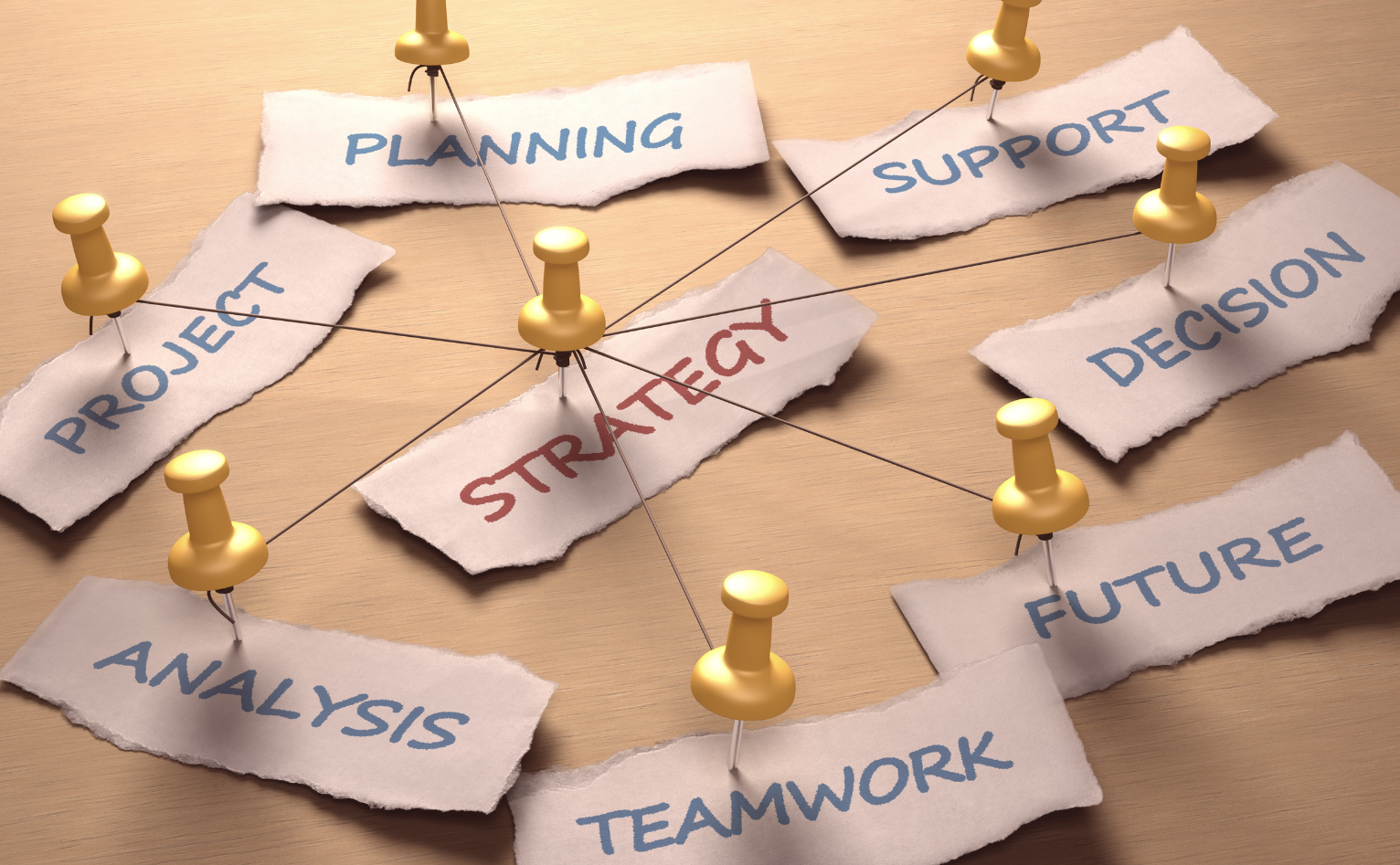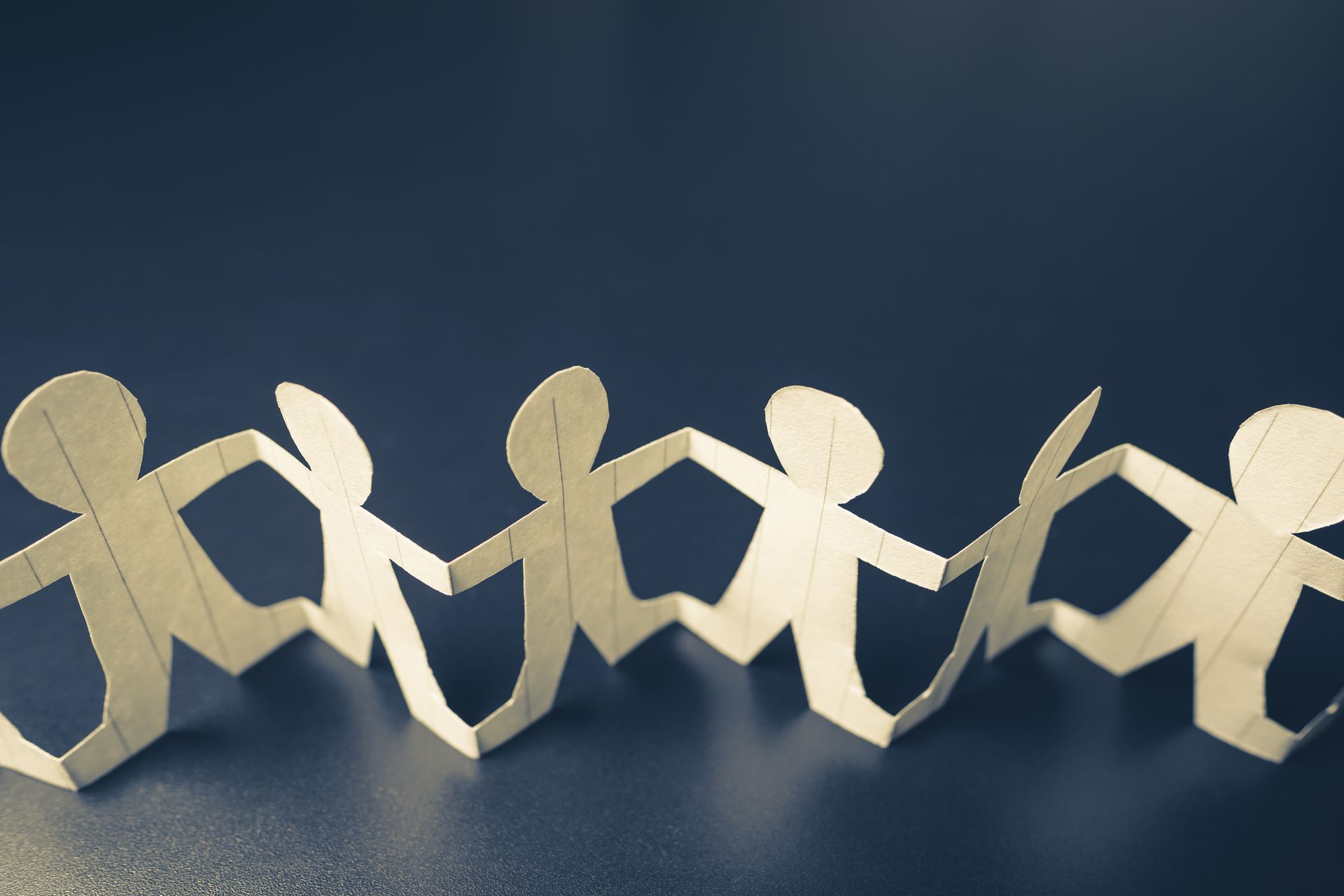What brought you to this moment in your career where the Sustainability Excellence Associate (SEA) made sense for you?
I felt it was a great way to prepare myself as a sustainability advisor. I am extremely invested in the broad integration of sustainability thinking in business management, in driving innovation strategies, and in inspiring new ventures and solutions for social and environmental challenges.
I understand that my experience in renewable energy and carbon markets is only a tiny part of the transition to a sustainable economy. Therefore, I took the opportunity to broaden my scope beyond energy to learn about water management, food security, biodiversity topics, and any intersections with natural capital.
More immediately, I am accountable for responsibly crafting messaging in my role of sustainability communications. To that end, I work diligently to investigate and correctly learn the foundational sustainability concepts so that my information and analysis are founded on a deeper reflection of facts.
How are you putting the knowledge, skills, and ability demonstrated in the SEA to work in your career (or work) today?
I use sustainability knowledge in many ways in my career. The most impactful has been understanding and explaining the nuances of sustainability concepts. The advice I integrate into content considers the tradeoffs involved in decision-making and holistic approaches that appreciate the social as much as the environmental aspects. I am also working to embed a strong sustainability perspective in the business implementation of sustainable practices.
For those starting out in the sustainability field, what advice do you have for them?
Read broadly and deeply, especially at the beginning, to see the interconnectedness of elements. I found my preparation for the SEA sufficiently explorative in introducing concepts, frameworks, methodologies, and tools. I would emphasize understanding the fundamentals, to which you can apply the learnings to different contexts. But learn the science.
There are innumerable free resources to start. Find a way of continuous learning that works for you—podcasts, books, wikis, open courses, thought leaders, mentors, the list goes on. I've also found it helpful to join communities of practitioners for both networking opportunities and knowledge exchange.
The sustainability community is an empathetic and generous bunch; reach out!
#OpenDoorClimate is one such example.
Lastly, the sustainability field is a dynamic space that requires conscious effort to keep up with new knowledge, technologies, standards, and regulations. It is both challenging and rewarding, but it is important to pace yourself. Do not be overwhelmed by the learning; it's a process.




